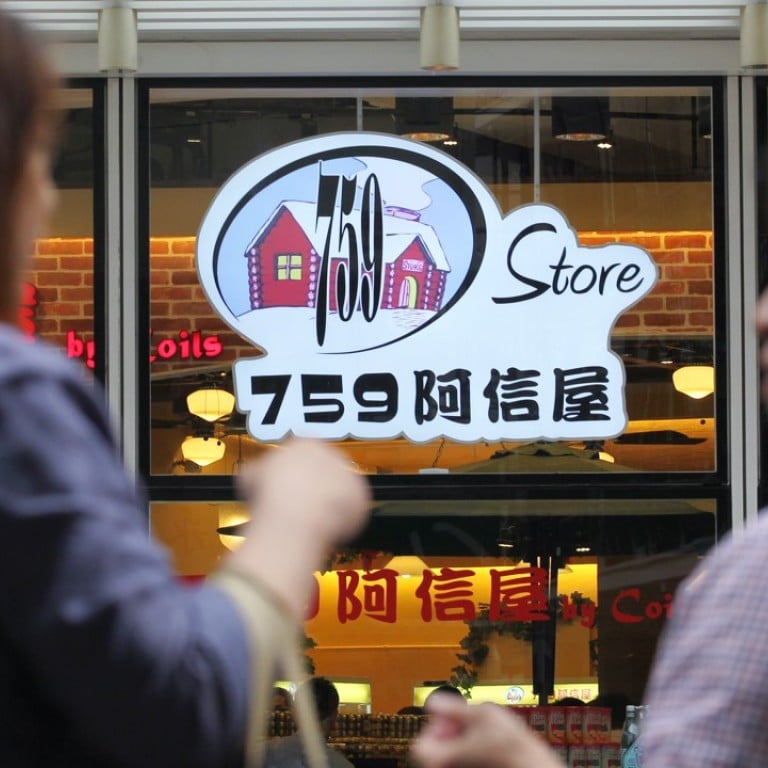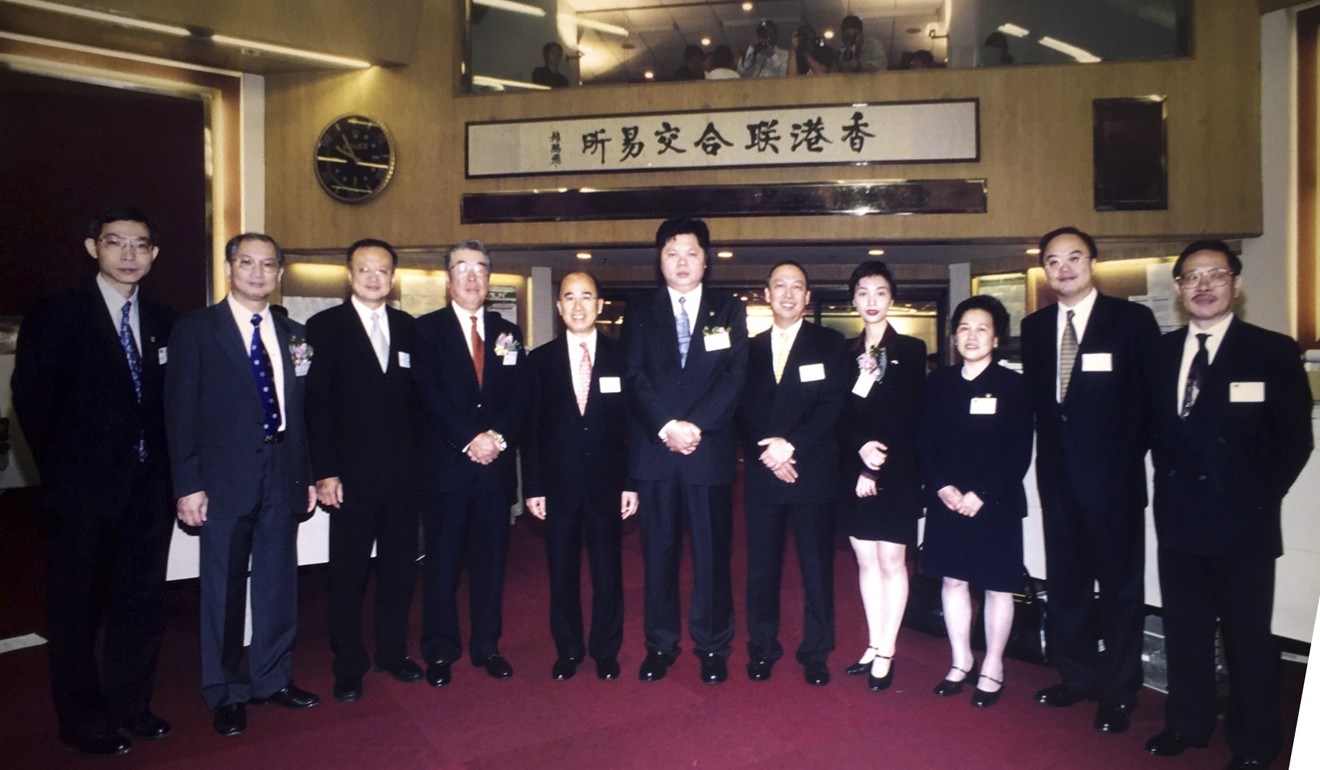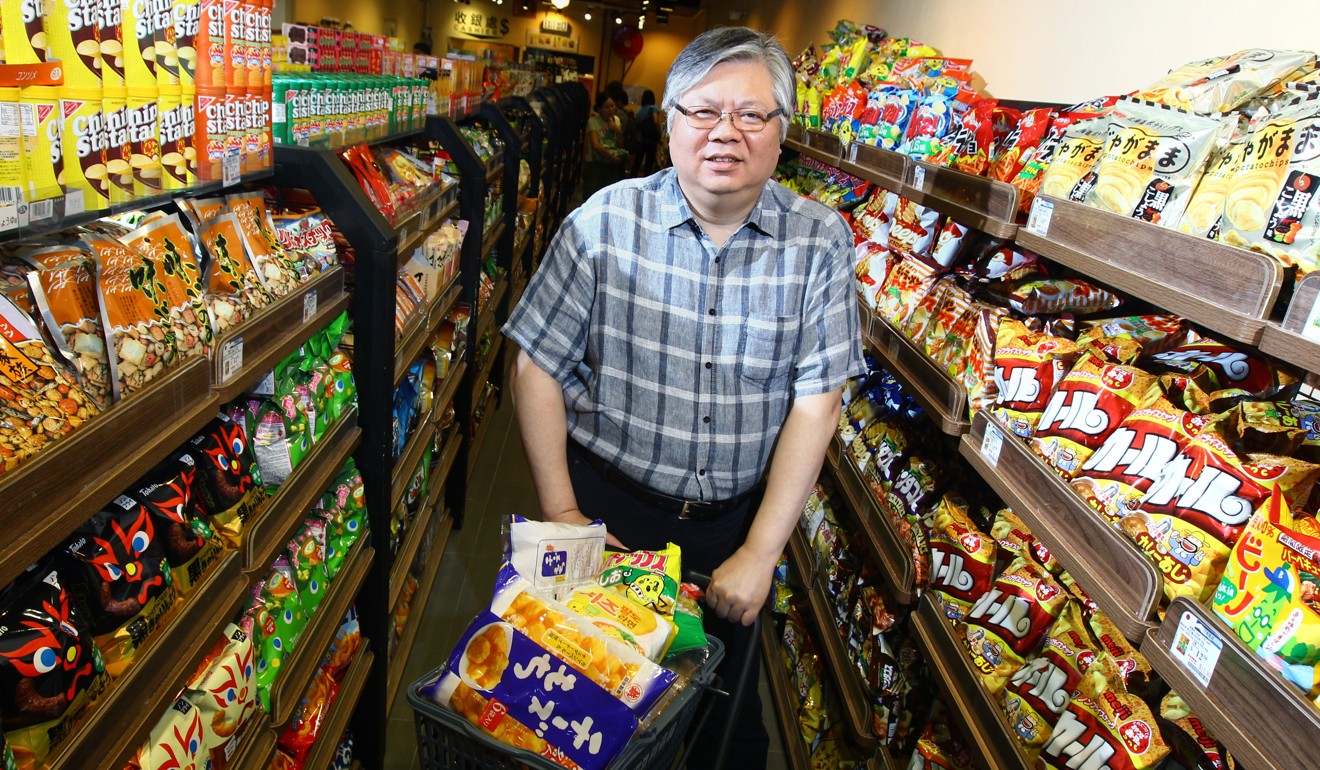
Exclusive | 759 Store’s new boss Tang Fung-kwan quashes takeover rumours, wants snack food chain to stay the course
Tang Fung-kwan, the new chairwoman of CEC International, says she has the firm backing of the founding chairman’s family
The newly appointed chairwoman of CEC International Holdings, which owns the popular 759 Store in Hong Kong, said on Thursday that there are no plans to sell and she would press on with the late founding chairman’s efforts to turn around the loss-making retail chain.
CEC’s share price had more than doubled to a 21-month high at HK$1.04 on August 20 as brokers speculated the company might become a takeover target following the death of founding chairman Coils Lam Wai-chun the previous day.
However, executive director Ida Tang Fung-kwan, 48, who was named as chairwoman of CEC and 759 Store on August 20, quashed those rumours.
“As I told the Hong Kong exchange last week, there are no takeover negotiations whatsoever,” Tang told the South China Morning Post in an exclusive interview at CEC’s offices in Kwun Tong, surrounded by photos and trophies won by Lam. “We are not under any pressure to raise funds and there is absolutely no plan to sell CEC or 759 Store.”
Lam, his wife and three children – two daughters and a son – own 70.89 per cent of the company, Tang said, adding that his death will not affect their shareholding, which is held in a family trust.
“Mr Lam’s family are now the majority shareholders and they fully support me and the management to continue his mission to turnaround the company,” she said.
Lam’s son Billy, 27, who has been with the company for a few years now is being groomed to take over the reins, she added.

But for now it is up to Tang, who joined CEC in 1993 after graduating from Hong Kong University, to lead a staff of 1,800 and make the company profitable once again.
“I learned from Lam on how to run the factory before I stepped into retail. Mr Lam would leave me in charge of the company whenever he was away on overseas trips. Now we have to just think of it as if he’s on a very long trip,” she said.
CEC initially made coils for audio products, telephone battery and lighting for over three decades and listed on the Hong Kong exchange in 1999. But it was 759 Store, which Lam founded in 2010, that made him a household name as its competitive pricing gave the big retailers a run for their money. Named after the CEC stock code – 759 – the retail chain started off selling snacks from Japan and Korea and later expanded into other food and grocery items.
At its peak, 759 Store had 290 outlets, but has suffered losses since 2016 amid high rent and falling sales because of a decline in tourists.
“Mr Lam admitted to the mistakes with regards to the fast-paced expansion. We have since cut down the number of shops to 190. We may close down 10 more unprofitable shops but open 10 in good locations,” she said.

Tang also said that the company had toyed with the idea of selling snacks and cosmetic products online but quickly decided to abandon the project.
“It is very costly to hire staff and drivers for delivery and e-commerce needs a lot of investment. We will not go in that direction. In Hong Kong, we will stick to physical shops,” she said.
Penny Cheung Ming-yat, senior manager at CEC, said that net loss had narrowed to HK$32.87 million (US$4.2 million) for the year ended April compared with a net loss of HK$49.99 million a year earlier.
“We have found that our shops in residential areas are the most profitable, while those in tourist areas are not so successful,” Cheung said.
She said the company was constantly in discussions with manufacturers in Japan, South Korea, Thailand and Europe so that it can import good quality products at a reasonable price as agents were cut out of the process.
Tang said that 759 Store will continue Lam’s mission of being a value-for-money retailer. “Many people thought that he wanted to compete with the big supermarkets. But the truth is he loved food and wanted 759 Store to offer good quality and reasonably priced snacks, food and other daily necessities for the mass market.”
Lam’s funeral will be held in mid-September.

